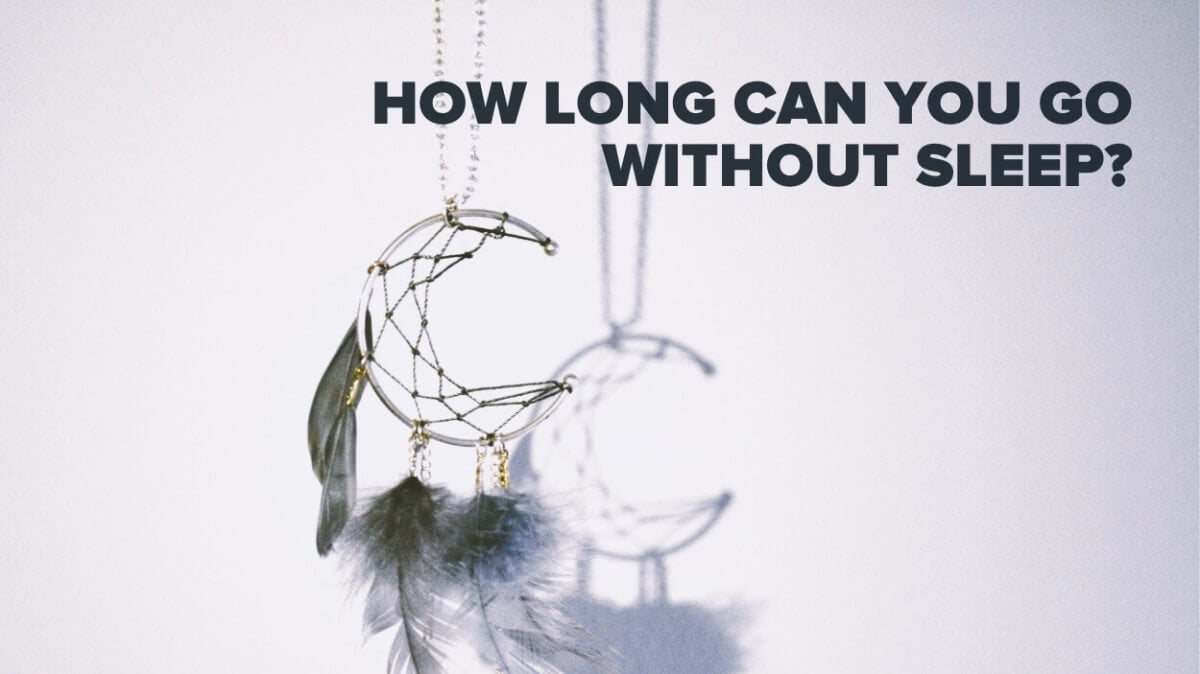How long can you go without sleep? This was the question 17-year-old Randy Gardner was asking himself back in 1964.
World Records For Sleep Deprivation
He wanted to win the 10th Annual Greater San Diego Science Fair, so he decided to see how long he could go without sleep naturally – not consuming any stimulants. His two friends helped to keep him awake.
William C. Dement, a researcher from Stanford University, monitored Gardner’s behavior during the experiment. Lt. Commander John J. Ross oversaw the medical aspects.
Randy Gardner stayed awake for 11 days – approximately 264 hours.
Some changes in his mood and behavior were evident. Already by the second day, he had problems focusing, and by day three he became easily irritable. On the fourth day, he started seeing hallucinations (he imagined he was a famous football player for San Diego Chargers). By day 5 his speech was affected, he felt dizzy and had more hallucinations. At this point, his parents insisted he had a medical checkup, which was physically normal.
Although physically he remained well and played pinball on the 11th day he suffered from mood swings, irritability, and lack of concentration. Dr. Ross found more subtle changes – Gardner thought a street sign was a person on day 4, and on day 11 a simple maths test subtracting 7 from 100 and 7 from the result – he forgot what he was doing by 65.
After a 15-hour sleep, he appeared to be none the worse for his experiment. It took Gardner only a short time to readjust to normal sleep and wake up patterns. His well-monitored experiment helped us to understand how long you can go without sleep. Just 2 weeks later Jim Fresno broke his record, however, Gardner did win first place in the San Diego fair.
The Guinness Book of World Records states that the record for sleep deprivation stands at 449 hours, held by Maureen Weston who sat in a rocking chair. But despite this mammoth effort, the results were not as closely monitored as Randy Gardners – and mini-sleeps with your eyes open may have occurred. The Guinness book of records no longer publishes sleep derivation since it was felt to be too dangerous.
But what is interesting is that, although some mood changes and irritability were noted, the more subtle changes were not so obvious – and these occur when your sleep is either not sufficient or of poor quality.
Our friends at Brainiac’s have put together an interesting educational video on the science of sleep and how our bodies react to signs of sleep deprivation.
What happens when we sleep?
“Even a soul submerged in sleep is hard at work and helps make something of the world.” – Heraclitus 500 BC
While you sleep your brain continues to work hard. It sorts things out, it turns short term memory into long term memory and detoxifies. It helps to regenerate your immune system to fight disease.
Your sleep has cycles of deep sleep and REM (rapid eye movement sleep). You spend more time in deep sleep in the early part of the night and progressively have more REM sleep later. Your dreams during the REM phase of sleep is a reflection of the sorting out process which is taking place inside your brain.
What happens when we go without sleep?
24 hours without sleep:
- Drowsy
- Irritable
- Poor decision making
- Memory problems
- Impaired judgment
- Increased likelihood of getting into a car accident
By 24 hours without sleep, you function as if your blood alcohol level is 0.1%. The legal limit for driving in America in most states is 0.08% and less for younger drivers. And you might not even be aware of the state you’re in.
48 hours of no sleep:
After not sleeping sleep for 2 days, you will suffer more serious effects since your natural hormone cycle is disrupted. This includes insulin, cortisol, and growth hormone. So, your appetite is affected and you are more likely to want fatty foods. Hence obesity is more likely for poor sleepers.
You will feel extremely tired, make poor decisions, be unable to focus, and possibly develop impaired speech. You may experience phases of microsleep lasting up to 30 seconds. About 16.5% of fatal car crashes in the US are caused by microsleep according to the AAA Foundation for Traffic Safety.
After 72 hours without sleep:
No sleep for three days leads to the following problems:
- Difficulty staying awake
- Poor thinking ability
- Memory problems
- Focus difficulty and inability to complete tasks
- Extreme irritability and paranoia
- Difficulty in recognizing facial expressions.
Hallucinating when tired after three to four nights is not uncommon.
Sleep is not overrated
So, how long can you go without sleep? It’s surprising how quickly your brain stops working accurately and effectively. Read more on the Importance of Getting Quality Sleep – it might be the missing puzzle piece in your daily top performance.
When you do not get enough good quality sleep, your brain ceases to function at its best. You may feel tired, stressed, and irritable, but there are also more subtle changes happening. And you may not even be aware of this. Although death from sleep deprivation has not been recorded on humans, serious accidents caused by the lack of sleep occur every day.
Fortunately, there are ways to help you get the sleep you need. Weighted blankets exhibiting the Deep Touch Pressure Stimulation may be the perfect way to end your day, making it so easy and natural to fall asleep and peacefully to dream. They have been scientifically proven to benefit people with anxiety induced insomnia, among other sleep and stress related conditions, in calming their senses and improving overall sleep quality.
“Your future depends on your dreams, so go to sleep.” — Mesut Barazany


 United States (USD $)
United States (USD $)